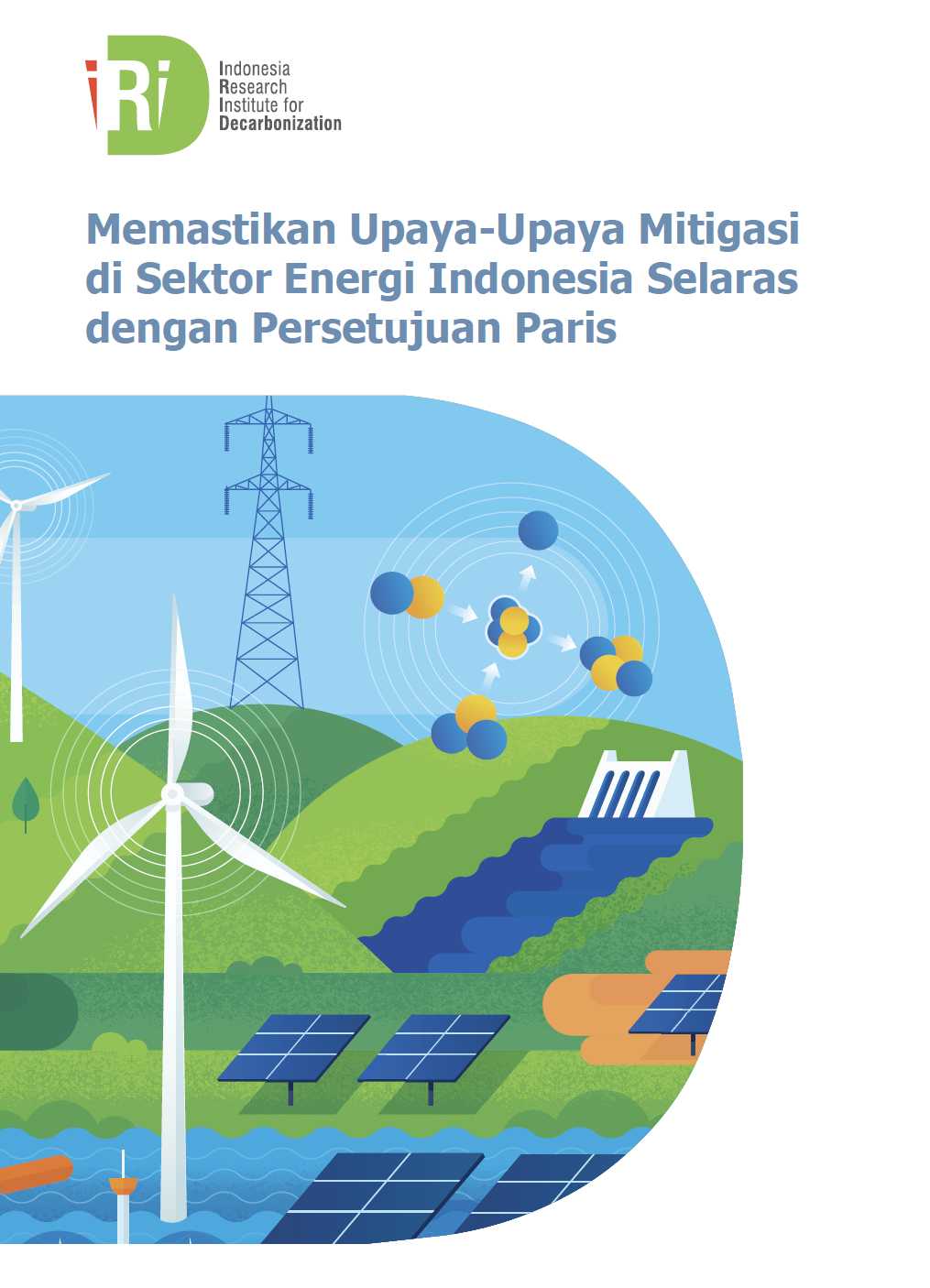Global Stocktake (GST) pertama telah dilakukan di bawah agenda Conference of the Parties serving as the meeting of the Parties to the Paris Agreement ke-5 (CMA5) yang dilangsungkan bersamaan dengan _ ke-28 (COP28) tahun 2023 di Dubai. Berdasarkan proses review GST pertama, upaya mitigasi, adaptasi, . Means of Implementation (MoI) dan dukungan yang dilakukan oleh para Pihak dinilai belum cukup dan masih belum selaras dengan pathway untuk menekan laju kenaikan suhu rata-rata global tidak lebih dari 1,5oC di atas suhu rata-rata era pra-industrialisasi, sebagaimana yang tercantum dalam Pasal 2 Persetujuan Paris. Intergovernmental Panel on Climate Change (IPCC) pada Laporan Sintesis IPCC ke-6 menyatakan bahwa aktivitas manusia yang menghasilkan emisi Gas Rumah Kaca (GRK) telah menyebabkan kenaikan suhu rata-rata global sekitar 1,1oC, serta dampaknya telah dirasakan di berbagai kawasan di dunia, utamanya oleh kelompok rentan secara tidak proporsional.
Some of the key findings from the discussion are the following:
A. The Urgency of Integrating Climate Analysis Data with Planning
Although Indonesia has climate analysis data, however, the stakeholders have not used the available data yet, particularly for the strategic sectors in Indonesia that shape the economy. The available climate analytic data could actually be used to calculate the losses from climate change impacts as well as from disasters. Other sectors in which climate actions are required, are also encouraged to use the climate analytic data in planning the development and in formulating better policies. Hence, the use of climate analytic data for energy transition modelling is highly recommended and equally important to really see how temperature increase affecting the renewable energy based power generation, among others.
However, the use of climate analytic data needs to consider the existing time lag; meaning that today’s climate information that is used in the planning processes, may be obsolete when the implementation phase is conducted. Therefore, the climate actions planned need to be very ambitious to anticipate the lagging of climate analysis data.
B. Indonesia's Contributions to Achieve the Paris Agreement Goals
Indonesia’s Enhanced Nationally Determined Contribution (ENDC) is still considered as insufficient to align with the Paris Agreement goals. To have an early retirement of coal fired power plants (CFPP) in Indonesia, particularly regarding to the growth of the captive power plants in Indonesia, will certainly be favourable to align Indonesia’s contributions to the Paris Agreement goals. However, this may be depended by the availability and clarity of the financial scheme for the early retirement of coal fired power plants in Indonesia.
C. Climate Actions Challenges in the Energy Sector
Several challenges identified in the implementation of climate actions in the energy sector are the following:
1. Synchronizing the greenhouse gas emission reduction with the population and economy growth
To achieve Net Zero Emission in 2060, Indonesia will need to peak its greenhouse gas emissions in 2035. However, to date, Indonesia’s electricity consumption per capita remains relatively low (at 1,100 kWh – 1,200 kWh) compare to those of developed countries (at 5,000 kWh – 6,000 kWh). With the projection of growth in population and economy, it is expected that Indonesia’s greenhouse gas emissions will also increase, if energy efficiency measures are not applied. Therefore, in the context of limiting Indonesia’s greenhouse gas emissions, anticipating its population and economy growth, energy efficiency measures are highly encouraged for Indonesia to implement.
2. Society’s behaviour change in consuming energy
Indonesia is currently promoting electrification program to reduce its greenhouse gas emissions in the long-term. Although the strategy could potentially reduce Indonesia’s greenhouse gas emissions, particularly at the household level, Indonesia’s energy consumption patterns need to also be adjusted. This is due to the fact that Indonesia’s public perceptions on low energy appliances, is still limited. The perception concludes that by using low energy appliances, it will automatically reduce the energy consumption. With such kind of behaviour, instead of reducing the use of energy, people are using more energy than before.
3. Regulatory challenges
In the context of renewable energy development as means to reduce greenhouse gas emission, the local content regulation (LCR or Tingkat Komponen Dalam Negeri/TKDN) is seen as counterproductive to Indonesia's energy transition efforts. A relaxation of the regulation is deemed necessary to stimulate the development of renewable energy in Indonesia, including facilitating the import of renewable energy technology. The discussion also raised views regarding the potential of using the national budget as stimulus for industries, to encourage the manufacturing of renewable energy technology domestically.
D. Strengthening the Capacity and Role of Local Stakeholders in Energy Sector Mitigation Actions
One of the initiatives that has been developed by the Ministry of Energy and Mineral Resources (MEMR) is the “Patriot Energy” program. The program consists of sending out competent young people in renewable energy issues, to assist communities in 3T (Disadvantaged, Frontier, and Outermost) areas of Indonesia. This program aims to increase the community’s understanding on renewable energy, so they can actively involved in managing the potential renewable energy sources in their areas. This is important, to ensure that local communities participations are existed throughout the pre-feasibility study, installation and maintenance phases. It is expected that by increasing their understanding, will help them to manage the existing renewable energy facilities particularly in their area.
The role of local governments is equally crucial in the energy sector; recalling that although most of energy policies are developed at the national level, but the implementation will require the involvement of local actors. Therefore, it is important for both the central and local government to align their existing policies, as well as with the local potential that can be further developed.
Notes: The full version of the discussion paper is only available in Bahasa Indonesia.
Share:




